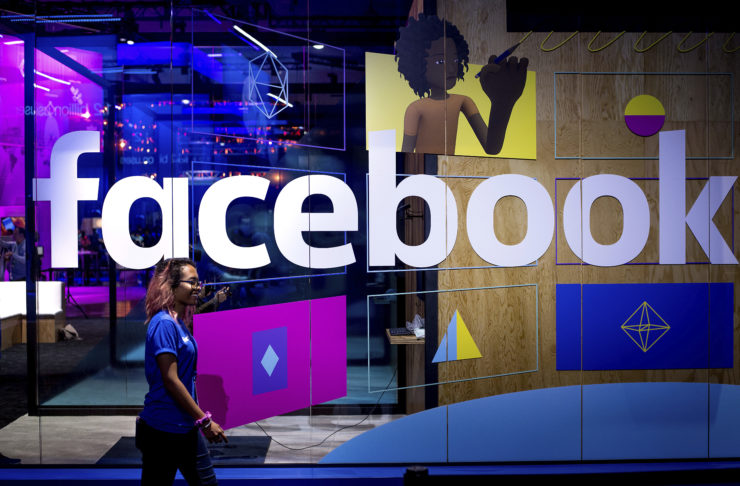Yesterday, New York Times media columnist Jim Rutenberg argued that America’s advertisers have a civic obligation to save the news. Not only is he wrong, but he’s giving a free pass to news executives to keep their heads stuck in the sand.
Rutenberg along with many others—media critics, digital strategists, news associations, college journalism professors, my Uncle Todd who lives in Tampa—all blame Google and Facebook for luring ad dollars away from traditional news organizations, and they blame advertisers for being lured away, thereby helping to decimate newsrooms. If not for those two behemoths working in cahoots with greedy advertisers, the argument goes, we wouldn’t be swimming in fake news and our electorate would be a heck of a lot smarter.
We’re being told that the way to fix it—to save news, to save democracy—is to implore advertisers to spend money on our trusted local and national news outlets.
“Advertisers were once happy to pay to reach big, broad audiences with the hope of getting their messages in front of the right customers,” Rutenberg writes. “Now they can use Facebook and Google to reach a smaller, more targeted audience, right down to the correct ZIP code. The new environment is forcing newspapers to scramble to come up with a solution that can keep the lights on, and keep the staff large enough to continue to do real, probing journalism, before it’s too late and it’s all over.”
But this “new environment” is already three decades old, and it’s time we stopped blaming Google and Facebook for the dilapidated state of America’s media business.
To start, Facebook didn’t invent the concept of geographically-targeted advertising; newspapers did. In the mid-80s, just as the commercial Internet was coming online, our largest newspaper conglomerates were already deep into a suburban and zoned edition print strategy. That could have been a smart beginning to geo-targeted digital publishing. There would have been plenty of time to develop and test new scenarios and business models for the future. But newspaper executives retrenched and retreated to print, failing to advance that strategy into the digital age.
Next, consider the plight of the average American business buying ads. Recently, we’ve seen steady economic growth and stock market highs, but that has come after a decade of recession. It was during this time that news organizations saw some of their sharpest declines, while a trove of new digital-only media companies launched. Legacy news orgs decided not to build their own systems and tools to offer ad buyers the degree of targeting they craved, so the ad buyers went elsewhere. Naturally, the relatively few ad dollars available went to the new players and platforms, who could show positive results.
So why do news organizations keep blaming others? Because they suffer from Stockholm syndrome. They blame Facebook and Google for hijacking audiences and the ad dollars that go with them, yet they trust and believe that both companies are helping them out. News organizations gleefully participate in Google and Facebook’s initiatives to train journalists, develop new storytelling formats and get news content seen by more people. Facebook is teaming up with Poynter to launch a certificate curriculum for journalists, and it’s working with the Knight Foundation to provide training in local newsrooms. Google’s 2017 News Lab Fellowship winners include journalists from ProPublica and Investigative Reporters & Editors.
I have yet to see a Google or Facebook-led fellowship or training initiative that shows news organizations how to build their own competitive ad platforms for the future.
I recently wrote about how we’re standing on the precipice of the next big transformation, this time from the Internet we know to an artificially intelligent, voice-powered information ecosystem. So it concerns me every time I see media columnists and news executives placing blame on others.
There are news organizations that have figured out how to make money, in spite of the platforms. De Correspondent, a general news site based in The Netherlands, has built a self-sustaining subscription model with 56,000 paying members. The Information, a tech news company based in Silicon Valley, has a successful paid subscription model that supports a continually-growing masthead of full-time reporters. On the broadcast side, Leo Laporte has built a small empire with his This Week In Tech brand, which now incorporates various Web shows, podcasts, events and even a developer program.
Like Rutenberg, I’m making a plea for common sense. As citizens, we should support quality news organizations, and we should pay newsrooms for their output. If you believe that news is a civic good, then you should feel compelled to pay for it out of your own pocket—and to pay for those who cannot afford the cost. But you can’t argue that advertisers have a moral responsibility to save the news industry.
I know what the current trends are. More importantly, I know what’s beyond the horizon. It’s time that the industry comes to the realization that the future of news really is up to journalists.
Rutenberg along with many others—media critics, digital strategists, news associations, college journalism professors, my Uncle Todd who lives in Tampa—all blame Google and Facebook for luring ad dollars away from traditional news organizations, and they blame advertisers for being lured away, thereby helping to decimate newsrooms. If not for those two behemoths working in cahoots with greedy advertisers, the argument goes, we wouldn’t be swimming in fake news and our electorate would be a heck of a lot smarter.
We’re being told that the way to fix it—to save news, to save democracy—is to implore advertisers to spend money on our trusted local and national news outlets.
“Advertisers were once happy to pay to reach big, broad audiences with the hope of getting their messages in front of the right customers,” Rutenberg writes. “Now they can use Facebook and Google to reach a smaller, more targeted audience, right down to the correct ZIP code. The new environment is forcing newspapers to scramble to come up with a solution that can keep the lights on, and keep the staff large enough to continue to do real, probing journalism, before it’s too late and it’s all over.”
But this “new environment” is already three decades old, and it’s time we stopped blaming Google and Facebook for the dilapidated state of America’s media business.
To start, Facebook didn’t invent the concept of geographically-targeted advertising; newspapers did. In the mid-80s, just as the commercial Internet was coming online, our largest newspaper conglomerates were already deep into a suburban and zoned edition print strategy. That could have been a smart beginning to geo-targeted digital publishing. There would have been plenty of time to develop and test new scenarios and business models for the future. But newspaper executives retrenched and retreated to print, failing to advance that strategy into the digital age.
Next, consider the plight of the average American business buying ads. Recently, we’ve seen steady economic growth and stock market highs, but that has come after a decade of recession. It was during this time that news organizations saw some of their sharpest declines, while a trove of new digital-only media companies launched. Legacy news orgs decided not to build their own systems and tools to offer ad buyers the degree of targeting they craved, so the ad buyers went elsewhere. Naturally, the relatively few ad dollars available went to the new players and platforms, who could show positive results.
So why do news organizations keep blaming others? Because they suffer from Stockholm syndrome. They blame Facebook and Google for hijacking audiences and the ad dollars that go with them, yet they trust and believe that both companies are helping them out. News organizations gleefully participate in Google and Facebook’s initiatives to train journalists, develop new storytelling formats and get news content seen by more people. Facebook is teaming up with Poynter to launch a certificate curriculum for journalists, and it’s working with the Knight Foundation to provide training in local newsrooms. Google’s 2017 News Lab Fellowship winners include journalists from ProPublica and Investigative Reporters & Editors.
I have yet to see a Google or Facebook-led fellowship or training initiative that shows news organizations how to build their own competitive ad platforms for the future.
I recently wrote about how we’re standing on the precipice of the next big transformation, this time from the Internet we know to an artificially intelligent, voice-powered information ecosystem. So it concerns me every time I see media columnists and news executives placing blame on others.
There are news organizations that have figured out how to make money, in spite of the platforms. De Correspondent, a general news site based in The Netherlands, has built a self-sustaining subscription model with 56,000 paying members. The Information, a tech news company based in Silicon Valley, has a successful paid subscription model that supports a continually-growing masthead of full-time reporters. On the broadcast side, Leo Laporte has built a small empire with his This Week In Tech brand, which now incorporates various Web shows, podcasts, events and even a developer program.
Like Rutenberg, I’m making a plea for common sense. As citizens, we should support quality news organizations, and we should pay newsrooms for their output. If you believe that news is a civic good, then you should feel compelled to pay for it out of your own pocket—and to pay for those who cannot afford the cost. But you can’t argue that advertisers have a moral responsibility to save the news industry.
I know what the current trends are. More importantly, I know what’s beyond the horizon. It’s time that the industry comes to the realization that the future of news really is up to journalists.



